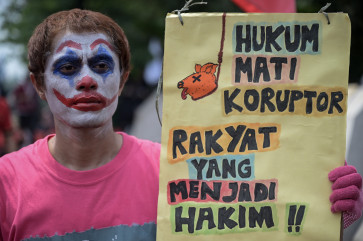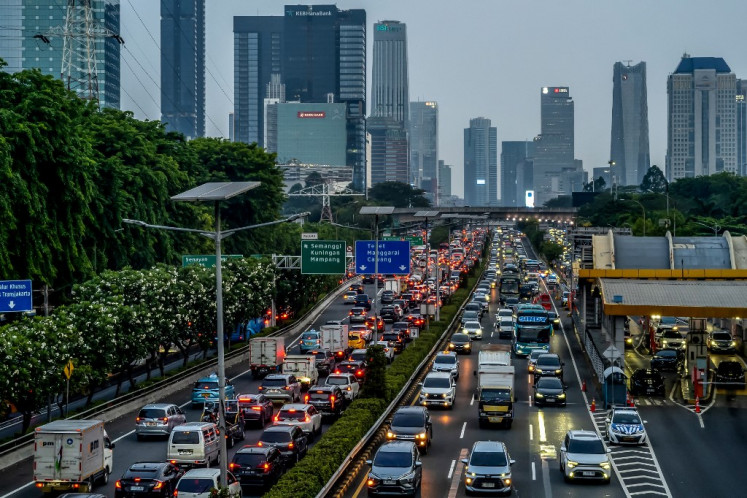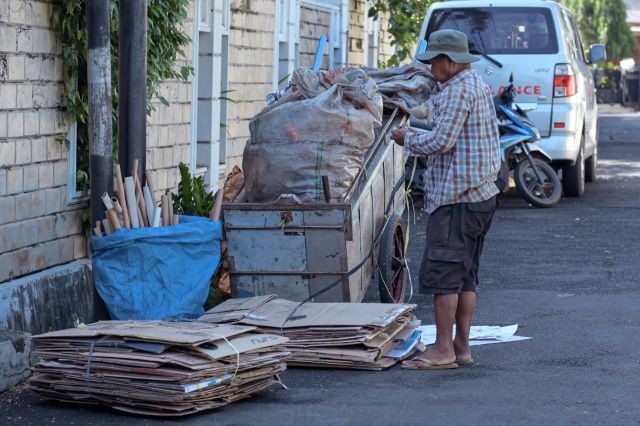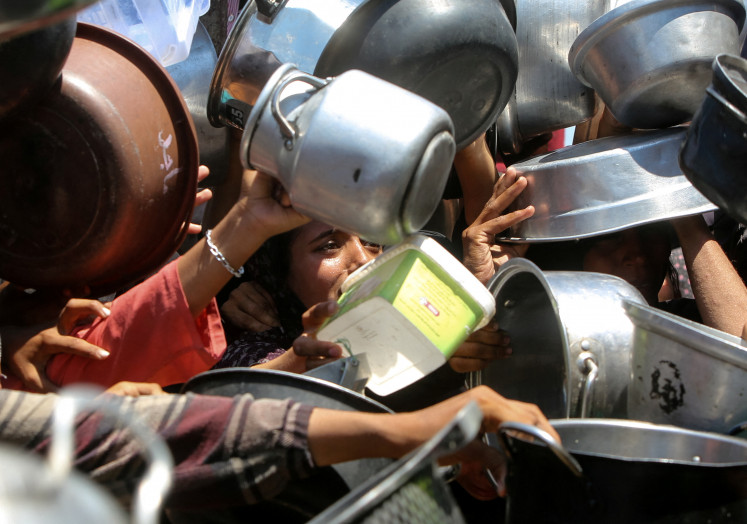Popular Reads
Top Results
Can't find what you're looking for?
View all search resultsPopular Reads
Top Results
Can't find what you're looking for?
View all search resultsF&B sellers compromise taste on amid soaring sugar prices
Fitri Ramandani, a 17-year-old assistant to a Thai beverage seller, was only able to find a pack of sugar from a small warung located close to her cart in Kayu Putih district in East Jakarta
Change text size
Gift Premium Articles
to Anyone
F
itri Ramandani, a 17-year-old assistant to a Thai beverage seller, was only able to find a pack of sugar from a small warung located close to her cart in Kayu Putih district in East Jakarta. She had gone to several other small stores in the neighborhood, only to find empty shelves.
She used to buy a kilogram of sugar for Rp 14,000 (98 US cents). As nearby warungs and convenience stores increased their prices by around 14 percent to Rp 17,000 per kilogram, she had to raise her budget for sugar.
But due to financial constraints, she could recently buy only 2 kg of sugar to last her cart two days, from the usual 4 kg.
"It’s difficult to keep the business going," Fitri said on Friday. "It’s currently the rainy season, so we are seeing fewer customers. The rising prices make it harder."
Some of Fitri's customers have been complaining about the taste of their chocolate-flavored Thai tea drinks, saying they “weren’t as sweet”. And she now sometimes closes her shop at 9 p.m., earlier than her usual closing hour at 11 p.m., to save on sugar.
This decline in sales has been one of the impacts of the rising average price of sugar in Jakarta since January. Sugar production nationwide is estimated to have declined to around 2 million tons this year from 2.2 million tons in 2019, according to an outlook released in February by the Indonesian Sugar Association (AGI).
The country’s supply of sugar is projected to reach 1 million tons this year, while consumption is estimated to be 3.1 million tons.
"There will be a deficit in consumer sugar in 2020 if there is no [additional supply] from imports," the outlook says.
The AGI suggested sugar imports of at least 495,000 tons to meet nationwide demand until May and stabilize prices.
“Increasing sugar prices is normal leading up to Ramadan and Idul Fitri, as consumption is higher than usual," AGI executive director Budi Hidayat told The Jakarta Post on Friday. "This is mainly correlated to the supply of 2019, which was lower than consumption, while the milling season generally starts in May."
The highest price for sugar reached Rp 18,000 per kg on Friday, while the lowest was Rp 12,000 per kg, according to data from the Jakarta administration's website for food prices information, infopangan.jakarta.go.id.
Gondangdia Market in Menteng, Central Jakarta, was one of the markets with the highest prices and Paseban Market in Senen district in Central Jakarta with the lowest prices.
Yuniarti, a 40-year-old assistant at a store selling staple foods at the market, said her daily procurement declined to two bags of sugars — a bag contains 50 kg of sugars — from 3 bags due to the current shortage.
Her store, called Lie Anyan, raised its sugar prices gradually from Rp 15,000 per kg in early January to Rp 16,000 per kg in mid-January, to Rp 17,000 at the end of January and to Rp 18,000 in the beginning of February. Some of the store's loyal customers, one of whom used to buy 25 kg a day, had not made any sugar purchases for the last two weeks.
"We adjusted our prices to the suppliers' increasing prices," said Yuniarti. "Many customers were shocked by the rising prices. But they bought [the sugar] nonetheless, as they needed it."
Rising sugar prices has not only hit traders but also coffee shops. Arah Kopi, a small coffee shop chain in Pulo Gadung district in East Jakarta, for example, had to economize its sugar use for non-coffee beverages as its coffee mainly uses palm sugar, according to Muhammad Nur Ridwan, a 20-year-old attendant at the shop. The shop's dark chocolate drink needs the most sugar at 24 milliliter a cup.
"We cannot lower the sugar content in all beverages. If a customer asks for extra sugar, we can only provide them with a sugar packet," Ridwan said on Friday.
But not all businesses have felt the impact of rising sugar prices. Bunda Bread, a shop selling various breads and cakes in Kayu Putih, bought a 50-kg bag of sugar on Wednesday for Rp 600,000 at nearby Ampera Market, said 30-year-old shop attendant Baim Ibrahim.
Meanwhile, Nurliyati, a 59-year-old trader at Rawamangun Market in Pulo Gadung district in East Jakarta, said her suppliers recently raised the price of 50-kg bags of sugar to Rp 750,000 from Rp 600,000.
"The increase hasn't really affected our revenue," Nuliyati said. "As people need sugar, they will still buy it. I feel sorry for them." (dfr)










